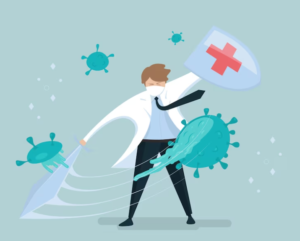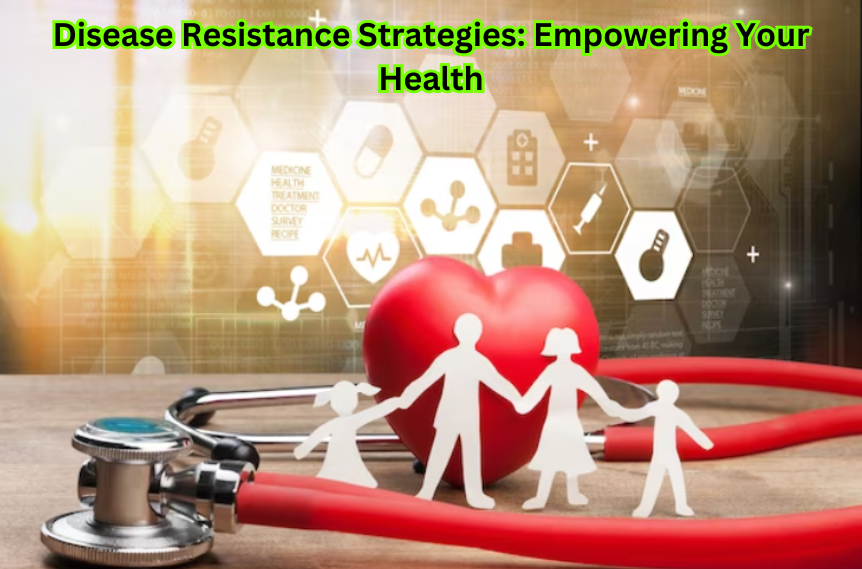In a world of health problems, we must use effective ways to avoid getting sick. This guide details practical tips and choices that boost your body’s natural defenses. Join us on a trip to learn how small, well-thought-out changes can make a big difference in how resistant we are to disease, ensuring a strong and stable state of health.
Opening the Doors to Strategies for Fighting Disease
It is impossible to say enough about how important disease resistance tactics are in a world where health risks are always changing. When we are in places where viruses, bacteria, and other germs are common, it is important to have tools that strengthen our bodies against getting sick. This piece discusses useful, scientifically proven ways to improve your health and protect yourself from getting sick. Click here.
Getting to Know the Basics: What Is Disease Resistance?
Before we start building up our defenses, let us make sure we understand the basics. Disease resistance is the body’s natural ability to find, attack, and eliminate dangerous germs. Multiple factors, including genetics, culture, and the immune system, cause it. When we know the basics, we can start putting tactics in place that make this natural defense system work better.

A nutrient-dense diet: boosting your immune system
A healthy, nutrient-dense food is one of the most important things you can do to avoid getting sick. Vitamins and minerals are very important for keeping your nervous system healthy. Learn about the power of antioxidants in fruits and veggies, how zinc and vitamin C can help your immune system, and how a colorful, varied plate can benefit your health. Your kitchen is where you can find the key to having a strong immune system.
The Role of Hydration: Feeding Your Body from the Inside Out
Staying hydrated is an important part of staying healthy that people often forget about. Water is the magic liquid that makes all of your body’s processes possible, from moving nutrients around to getting rid of toxins. Learn about the science behind staying hydrated, devise creative ways to do it, and discover how this simple but effective strategy helps your body fight off possible health threats.
Good sleep is the unsung hero of immunity.
People often skip sleep because of how busy life is these days. But you can not say enough about its importance for disease defense. Find out the complicated link between getting enough sleep and having a healthy immune system. Find useful ways to improve your sleep habits and make your room more comfortable for a good night’s sleep. Improve the quality of your sleep to help your body fight off infections.
Regular exercise: getting your defense forces ready
Working out is not just for looks; it is also a powerful way to fight sicknesses. Learn more about the science behind how exercise makes your immune system work better. Find the best way to exercise to protect yourself from getting sick and look into things that will keep you fit and boost your body’s defenses.
Dealing with stress: calming the storm inside
Lack of sleep and constant worry can weaken your defense system. Learn how the mind-body link works and how stress affects your ability to fight off disease. Start exploring different ways to deal with stress, such as practicing awareness or doing hobbies. While you calm the storm inside, you make it possible for your defense system to work at its best.
The Power of Vaccinations: Protection Based on Science
Vaccinations are a strong tool that can help people fight off diseases. Learn about the science behind vaccines, bust some myths about them, and look into how they help stop dangerous diseases. By learning about the medicines out there, you can help protect everyone else from different pathogens.
Conclusion: Making Tomorrow Stronger
As we come to the end of this look at ways to fight diseases, it is clear that strength is within our grasp. We can protect ourselves from possible health risks by making small, well-thought-out changes to how we live. Each choice we make, from the foods we eat to how we sleep, adds to the complex web of disease defense. To make tomorrow healthy and stronger, we do not need to be perfect, but we do need to make progress. Let us strengthen our health and be ready for any difficulties that come our way by learning more and taking action.
FAQ:
Join us on a trip to better health as we answer the most common questions about “Disease Resistance Strategies: Empowering Your Health.” Find out about scientifically proven ideas and useful tips that can help you protect your body from health risks. Let us discuss common questions, break down tactics, and clear the way for a strong and independent life.
How do you give patients the tools to deal with chronic illnesses?
To give people the tools they need to manage their chronic diseases, you need to encourage a shared and well-informed approach. Healthcare professionals are very important because they teach people about their conditions, treatment choices, and changes they can make to their lifestyles. Giving people the information and tools they need to take charge of their health includes letting them make decisions, helping them set realistic goals, and being there for them through the process. Encourage patients to keep an eye on themselves, make it easy for them to talk to you, and respect their needs and wants.

What affects people’s ability to manage their health and social care?
Several things affect people’s power in health and social care situations. Healthcare workers and customers must be able to talk to each other clearly to build trust and make decisions together. It is also important to have enough health knowledge, access to information, and cultural skills. The healthcare system’s structure, rules, and tools also affect a person’s confidence. Enabling people to take charge of their health and social care requires personal drive, family support, and the knowledge of how to use healthcare systems.
What is empowerment when it comes to taking care of a chronic illness?
Empowerment when dealing with long-term illness Self-management means giving people the information, skills, and trust they need to take an active role in their care. This means knowing what is wrong with them, following their treatment plans, and making smart choices about their lifestyle. People who feel empowered can better set and reach their goals, deal with the emotional parts of chronic sickness, and find their way around the complicated healthcare system. Empowerment and self-management of a chronic illness go hand in hand. This shows the importance of a patient-centered approach that respects the person’s rights and choices.
How do you Avoid and Handle Personal Health Concerns and Problems?
To avoid and deal with health problems, you must be responsible and look at the whole picture. Start by living a healthy life, which includes eating well, being active regularly, and getting enough sleep. Regular check-ups and screenings can help find problems early and stop them from happening. Learn how to deal with worry, do things that make you happy, and put your mental health first. Learn about your family’s medical background and actively make decisions about your health care. Getting help from doctors, nurses, friends, and family is an important part of a well-rounded plan for avoiding and dealing with health problems.

